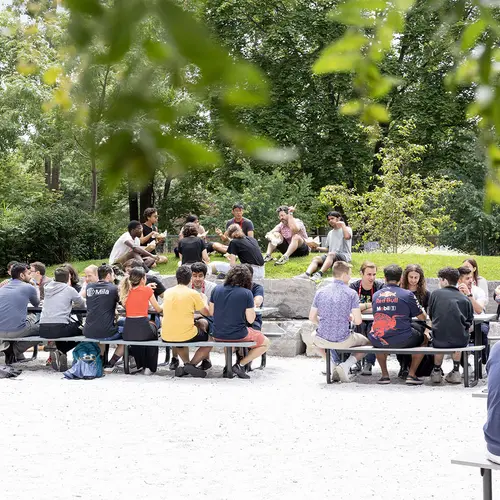
Gintare Karolina Dziugaite
Biographie
Gintare Karolina Dziugaite est chercheuse scientifique senior chez Google DeepMind, à Toronto, et professeure associée à l'École d'informatique de l'Université McGill. Avant de se joindre à Google, elle a dirigé le programme Trustworthy AI chez Element AI / ServiceNow. Ses recherches combinent des approches théoriques et empiriques visant à comprendre l'apprentissage profond.
Gintare Karolina Dziugaite est bien connue pour ses travaux sur la rareté des réseaux et des données, le développement d'algorithmes et la découverte des effets sur la généralisation et d'autres mesures. Elle a été la première à étudier la connectivité des modes linéaires, en les reliant d'abord à l'existence des billets de loterie, puis aux paysages de pertes et au mécanisme d'élagage itératif de la magnitude. Ses recherches portent également sur la compréhension de la généralisation dans l'apprentissage profond et, plus généralement, sur le développement de méthodes fondées sur la théorie de l'information pour l'étude de la généralisation. Ses travaux les plus récents s’intéressent à l'élimination de l'influence des données sur le modèle (désapprentissage).
Mme Dziugaite a obtenu un doctorat en apprentissage automatique de l'Université de Cambridge, sous la direction de Zoubin Ghahramani. Elle a étudié les mathématiques à l'Université de Warwick et a suivi la partie III des mathématiques à l'Université de Cambridge, où elle a obtenu un Master of Advanced Studies (M.A.St.) en mathématiques. Elle a participé à plusieurs programmes de longue durée à l'Institute for Advanced Study de l’Université Princeton (New Jersey) et au Simons Institute for the Theory of Computing de l'Université de Berkeley.


